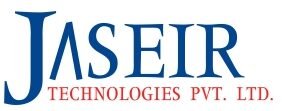Programming is the process of creating sets of instructions for computers to execute tasks. It is an essential skill in today’s technology-driven world and can open up numerous opportunities for problem-solving and innovation. If you’re new to programming, here is a beginner’s guide to help you get started with coding:
Table of Contents
Choose a Programming Language
There are various programming languages to choose from, each with its strengths and purposes. Some popular options for beginners include Python, JavaScript, and Ruby. Python is often recommended for its simplicity and readability, making it an excellent choice for beginners.
Set Up Your Development Environment
To write and run code, you’ll need a development environment. An integrated development environment (IDE) provides tools and features to aid in coding. For Python, you can use IDLE, PyCharm, or Visual Studio Code. These tools typically provide a code editor, a debugger, and other helpful features.
Learn the Basics: Start by understanding the fundamentals of programming concepts. Learn about variables, data types (such as strings, integers, and booleans), operators, conditionals (if-else statements), loops, and functions. These concepts form the building blocks of programming and are essential for writing effective code.
Practice, Practice, Practice
Programming is best learned by doing. Practice writing code regularly to reinforce your understanding and improve your skills. Start with small programs or exercises that focus on specific concepts. Many online platforms offer coding challenges and exercises, such as Codecademy, LeetCode, and HackerRank, where you can practice coding in a structured way.
Seek Learning Resources
There are abundant resources available to help you learn programming. Online tutorials, documentation, and video courses are great starting points. Websites like W3Schools, Mozilla Developer Network, and Codecademy offer free and interactive learning materials. Additionally, books and coding communities can provide valuable insights and guidance as you progress.
Collaborate and Join Communities
Engaging with other programmers can accelerate your learning journey. Join coding communities and forums, such as Stack Overflow or GitHub, where you can ask questions, share your code, and learn from experienced programmers. Collaborative projects and code reviews can help you gain valuable feedback and insights from peers.
Break Down Problems
Programming often involves solving complex problems. Break down the problems into smaller, more manageable tasks. Analyze the problem, understand the requirements, and design a solution before diving into the code. Writing pseudocode or creating flowcharts can help visualize the problem-solving process.
Debugging and Troubleshooting
Debugging is an essential skill in programming. Expect errors and bugs along the way, and be prepared to troubleshoot them. Learn to read error messages, use debugging tools, and test your code systematically. Debugging is an iterative process that helps you identify and fix issues, improving the quality of your code.
Learn from Existing Code
Programming is not just about writing code from scratch; it also involves understanding and modifying existing code. Explore open-source projects and study code written by experienced programmers. Analyze how they structure their code, solve problems, and apply best practices. This exposure will enhance your understanding and coding skills.
Embrace Continuous Learning: Programming is a constantly evolving field. Stay updated with the latest trends, technologies, and best practices. Follow blogs, attend conferences, and explore new libraries or frameworks. Learning new concepts and techniques will help you become a more versatile and effective programmer.
Comparing compiled and interpreted languages
It takes more than just a programming language to interact with a computer. The computer “thinks” in binary, after all. Human-readable code is converted into computer-readable code via compilers and interpreters.
If a language is built, the computer will translate your program without your intervention.
These are frequently quicker and more effective, although there is an additional “build” process needed. However, an interpreted language needs another program to act as a middleman, reading and running the code.
Describe syntax.
Let’s examine programming language writing in more detail. We’ll go through the essential ideas and vocabulary words to familiarise you with coding syntax.
Simply described, a computer language’s syntax is the collection of rules that specify its structure. On the other hand, semantics relates to logic. The meaning that is attached to symbols, letters, and words is the subject of semantics.
Keywords
A programming language has terms with reserved meaning just like any other human language. Any language delivers meaning in the same way! Reserved words with predetermined meanings and applications are known as keywords. Despite significant overlap, each programming language has its unique collection of keywords.
For instance, the keyword def creates a function (a task), and the term return executes the function and provides the outcome. View the example below to see how it functions before giving it a go on your own.
Remember, learning programming takes time and patience. Start small, be persistent, and enjoy the learning process. With practice and dedication, you’ll gradually gain proficiency and unlock the exciting possibilities that programming offers.



